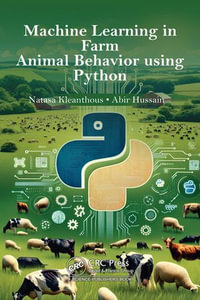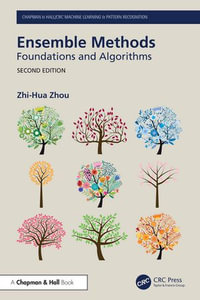
eTEXT
Field Informatics
Kyoto University Field Informatics Research Group
By: Toru Ishida
eText | 27 July 2012 | Edition Number 1
At a Glance
eText
$84.99
or
Instant online reading in your Booktopia eTextbook Library *
Read online on
Desktop
Tablet
Mobile
Not downloadable to your eReader or an app
Why choose an eTextbook?
Instant Access *
Purchase and read your book immediately
Read Aloud
Listen and follow along as Bookshelf reads to you
Study Tools
Built-in study tools like highlights and more
* eTextbooks are not downloadable to your eReader or an app and can be accessed via web browsers only. You must be connected to the internet and have no technical issues with your device or browser that could prevent the eTextbook from operating.
ISBN: 9783642290060
ISBN-10: 364229006X
Published: 27th July 2012
Format: ePUB
Language: English
Publisher: Springer Nature
Edition Number: 1
You Can Find This eBook In
This product is categorised by
- Non-FictionComputing & I.T.Computer ScienceArtificial Intelligence
- Non-FictionComputing & I.T.DatabasesData Capture & Analysis
- Non-FictionEarth Sciences, Geography, Environment, PlanningRegional & Area PlanningUrban & Municipal Planning
- Non-FictionEngineering & TechnologyEnvironmental Science
- Non-FictionEarth Sciences, Geography, Environment, PlanningGeographyGeographical Information Systems GIS & Remote Sensing
- Non-FictionEarth Sciences, Geography, Environment, PlanningThe EnvironmentEnvironmental Management
- Non-FictionComputing & I.T.Business Applications
- Non-FictionSociety & CultureSocial Groups
- Non-FictionEarth Sciences, Geography, Environment, PlanningGeographyHuman Geography























